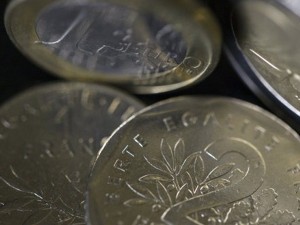TOKYO—The euro was weaker in Asian trading on Tuesday, weighed by worries over Italian Prime Minister Mario Monti’s decision to quit, while traders kept a close eye on the Fed’s two-day policy meeting.
The 17-nation currency bought $1.2932 and 106.50 yen, from $1.2939 and 106.53 yen in New York late Monday.
The dollar bought 82.32 yen, nearly flat with 82.33 yen in US trading.
Investors are betting that the US Federal Reserve would provide more stimulus to boost the limping US economy at its rate-setting meeting this week, which would tend to weigh on the greenback.
The US central bank’s policy-setting Federal Open Market Committee opens a two-day meeting Tuesday, as stubbornly high unemployment and the looming fiscal cliff budgetary impasse give the Fed more reasons to expand its stimulus efforts, analysts said.
Markets were watching for news of a breakthrough budget deal in Washington where a deeply divided Congress is debating a new spending agreement to avert fiscal cliff package of deep spending cuts and tax hikes due to come into effect on January 1.
“No news of breakthrough on fiscal cliff negotiations though the White House continues to express optimism a deal can be reached,” National Australia Bank said in a note.
The bank added that the market’s surprise at Monti’s resignation announcement at the weekend was “understandable” but added that it “should not be dramatized.”
Monti, who has been widely credited with putting Italy on a firmer fiscal footing, sought to calm jittery markets on Monday, saying the country’s next government would be “highly responsible” and “Europe-oriented.”
Dollar-yen trading was factoring in Sunday elections in Japan where main opposition leader Shinzo Abe is widely expected to become the country’s next prime minister.
Abe has repeatedly said he would pressure the Bank of Japan (BOJ) for more aggressive easing measures if elected, comments that have helped put downward pressure on the Japanese currency.
On Monday, official data pointed to Japan slipping into a recession, stoking fears about the health of the world’s third-largest economy and fuelling speculation over further central bank easing.
The BOJ releases its closely watched Tankan survey of corporate confidence this week.



